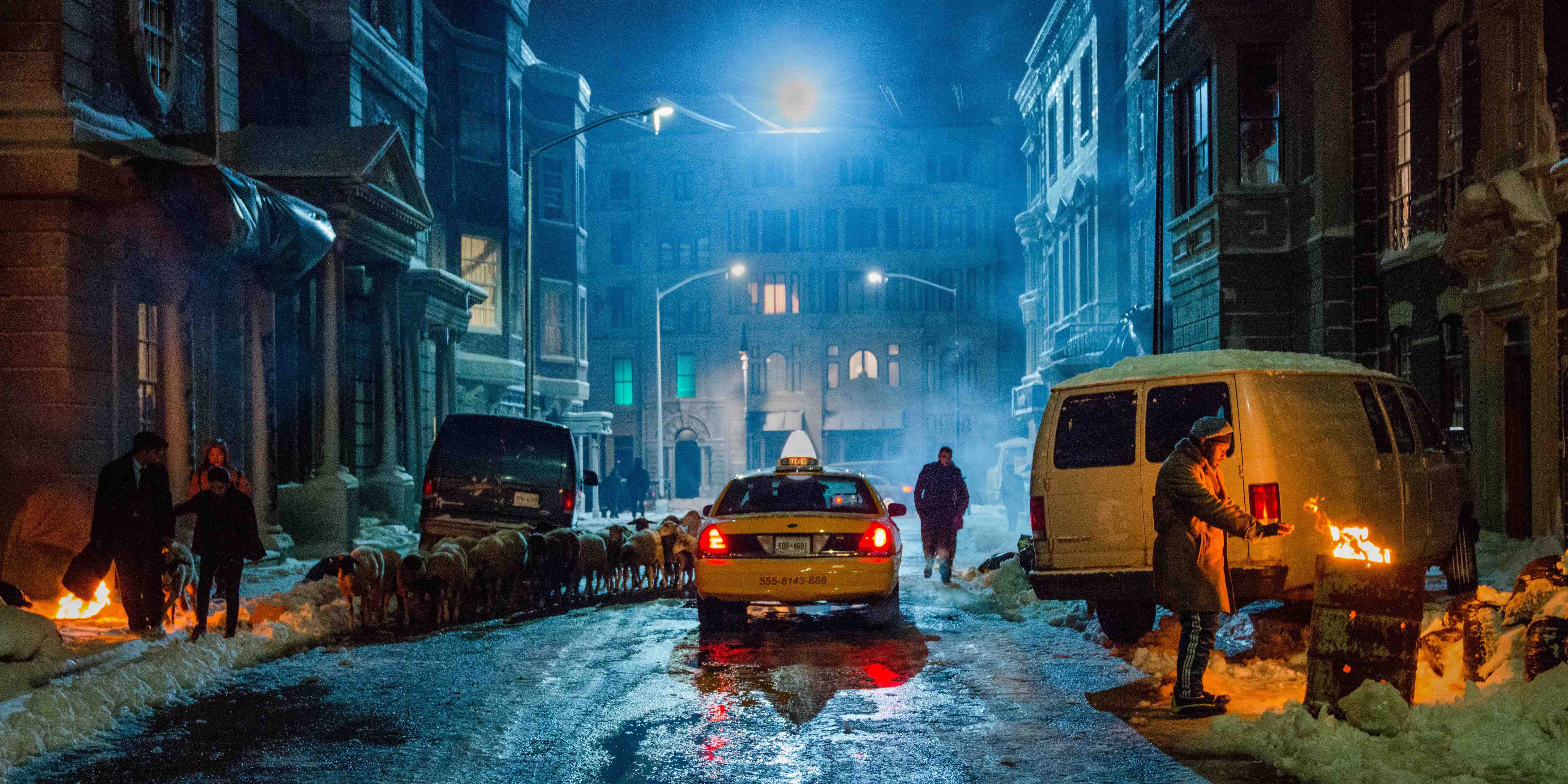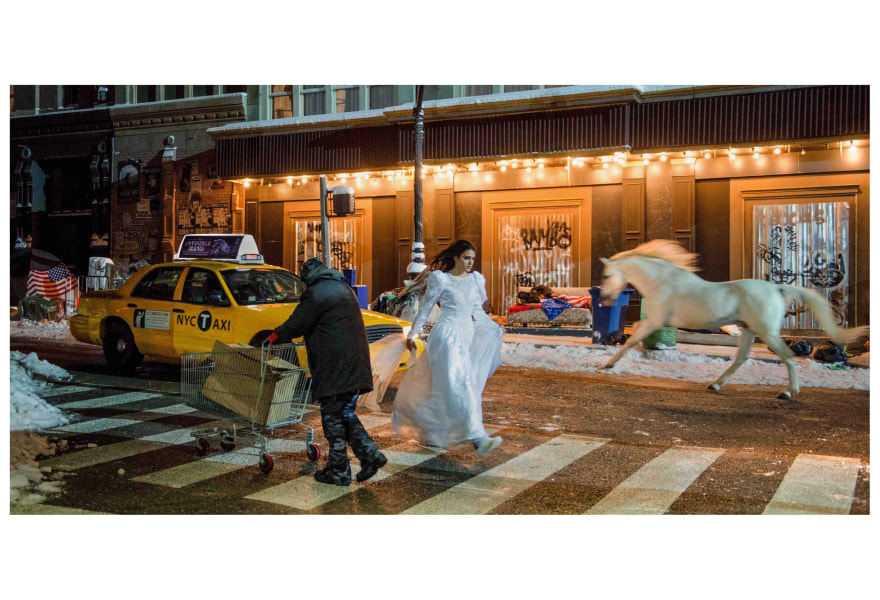15 september 2023, Flor Linckens
Julian Rosefeldt: Bridging Cinema and Capitalist Discourse
"It's easier to imagine the end of the world than the end of capitalism.” This quote, attributed to both Fredric Jameson and Slavoj Žižek, featured in the seminal work Capitalist Realism by Mark Fisher. The late political and cultural theorist argued that in our discourse, we are not truly considering any alternatives to capitalism in a serious way, since “capitalism occupies the horizons of the thinkable” — it is intertwined with how we see and consider the world around us. German artist Julian Rosefeldt is equally intrigued by capitalism and the sway it holds over us; at Unseen, his photography work will be on display in the Galerie Ron Mandos booth.
The Berlin-based artist gained recognition for his intricate and visually arresting film installations that interweave multiple layers of meaning and reality. Frequently, these complex, collage-like installations are displayed across multiple screens, creating immersive film experiences that delve deeper into the inner workings of our society. His pieces tend to offer meta experiences as well, peeking into the world of filmmaking while referencing films by Jim Jarmusch and Luis Buñuel.

Julian Rosefeldt, Euphoria (production still Nr 3), Edition of 6 (+2 AP), Galerie Ron Mandos
Rosefeldt works with found text-material. His newest feature-length piece “Euphoria”, which he worked on for six years, encompasses a wide array of quotes from both academia and popular culture spanning two millennia: from Snoop Dogg, the Rolling Stones, and Cardi B to Socrates, Marx, hooks, Chomsky, Sartre, Fanon, Rand,and Dutch historian Rutger Bregman. These sources — in their hundreds — have been completely decontextualized, almost as if to render them equally important. Together, they address contemporary problems in our society including global consumerism, privilege, and class. Together, they seem to refer to the algorithmic randomness of our lives.
The enigmatic and surreal twenty-four-channel installation consists of five vignettes and includes a cab scene, a scene in which homeless people discuss economic concepts, a scene in an Amazon-like warehouse, drone views of cities like New York, Detroit, and Chicago, as well as a performance of the 150-strong Brooklyn Youth Chorus — a visual metaphor for the future generation.

Julian Rosefeldt, Euphoria (production still Nr 4), Edition of 6 (+2 AP), Galerie Ron Mandos
Capitalism is generally associated with negative connotations: consumerism, greed, ecological collapse, neocolonialism and exploitation; elements that the artist addresses but doesn’t necessarily center. Rosefeldt seems to be at least equally intrigued by the euphoric potential of capitalism, which might explain the irresistible seductiveness of get-rich-quick schemes to even the most rational of us. Fueled by his own ignorance of the topic, Rosefeldt started researching it thoroughly. However, the work does not function as an argument for or against capitalism. Rosefeldt does not offer an underlying message. Although the viewer is confronted with a variety of economic thoughts, the artist hopes to activate the interpretation of the onlooker. At Unseen, Galerie Ron Mandos is showing photography works from “Euphoria”.

Julian Rosefeldt, Euphoria (production still Nr 1), Edition of 6 (+2 AP), Galerie Ron Mandos
Up until now, Rosefeldt’s most famous work had been “Manifesto” (2015-2017), a thirteen-channel installation that questioned the role of art through artist manifestos — from dadaism to situationism — and featured Cate Blanchett in a whopping thirteen roles, including a factory worker, a scientist, and a stay-at-home mom. In “Euphoria”, Blanchett returns as the voice of a tiger that roams an abandoned post-apocalyptic supermarket, reminding us that those who fail to remember history are doomed to repeat it.
Rosefeldt studied architecture in Munich and Barcelona. His works have been included in the collections of the MoMA in New York, the National Gallery in Berlin, the Maison Européenne de la Photographie in Paris, The Saatchi Collection and the UBS Art Collection in London, and the Art Gallery of New South Wales in Sydney. Since 2011, he has been active as a professor of Digital and Time-Based Media at the Akademie der Bildenden Künste in Munich.
